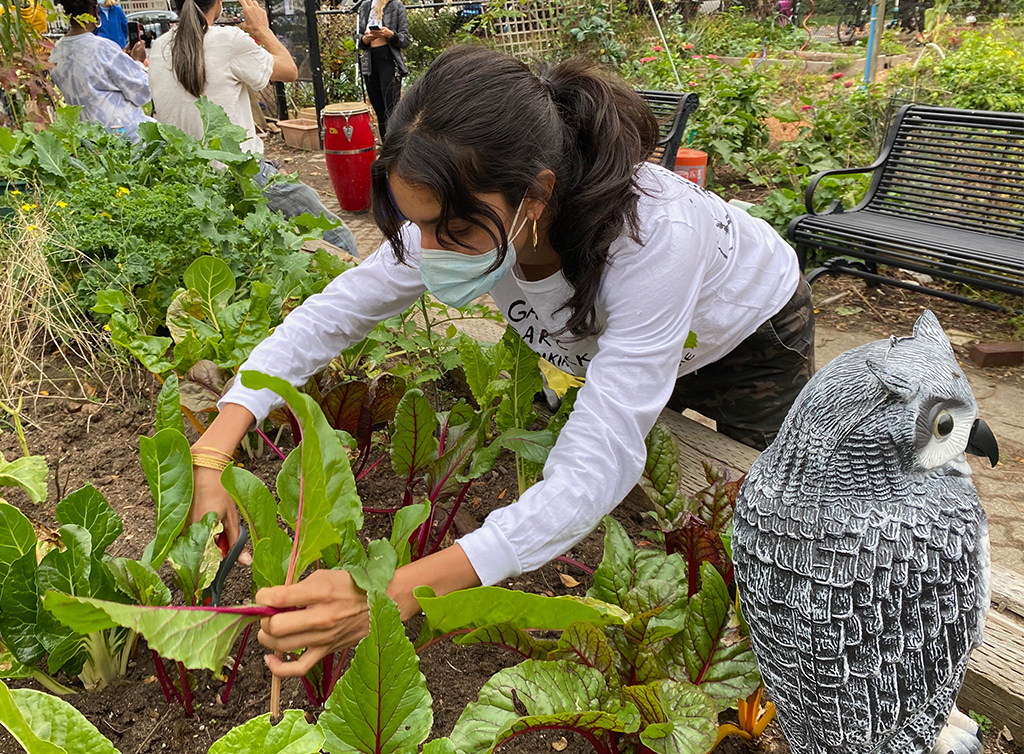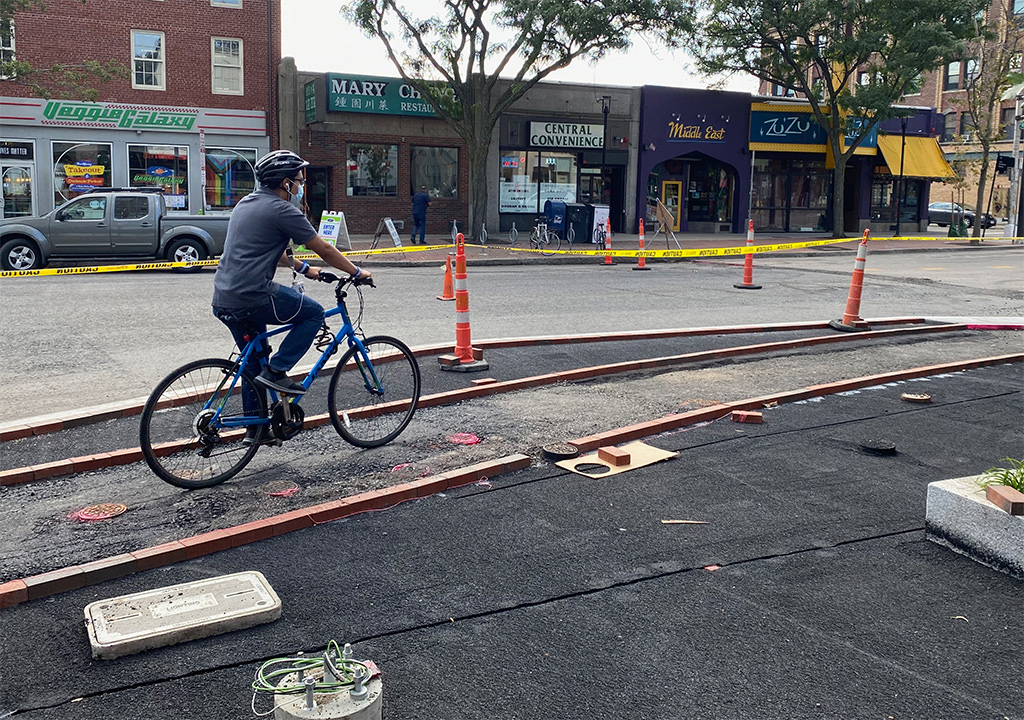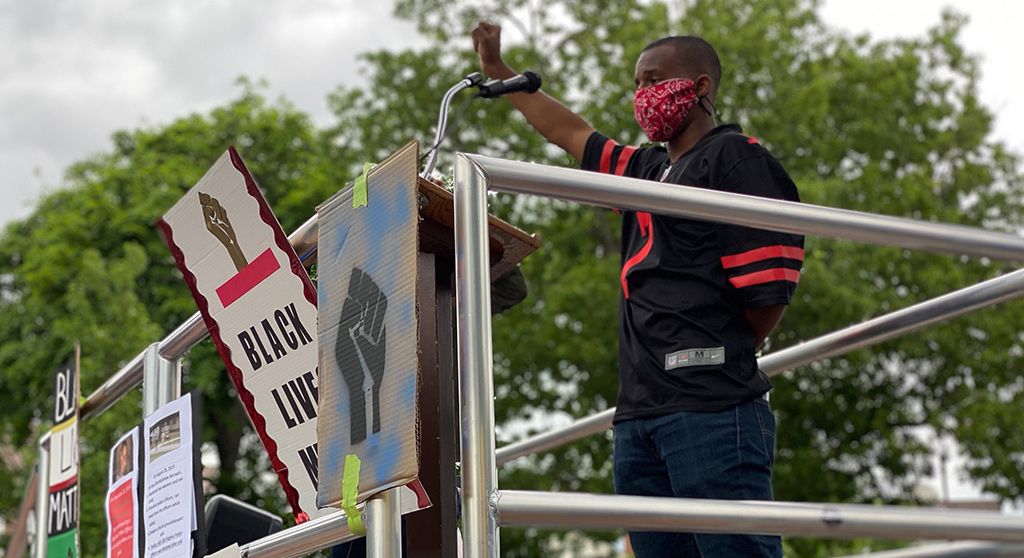The best of Cambridge in 2020
If the obvious worst thing about this year was the coronavirus, the best thing is just as apparent: Our response to the pandemic as a city and as individuals. In doing a bit of crowdsourcing for a subjective list of uplift, we heard a good summation from Central Square’s Patrick Barrett of what shone in 2020: “Average, everyday citizens in Cambridge working their asses off to save their businesses, friends and loved ones while their government abandoned them.” Whether in answer to Covid-19 or despite it, there was plenty to celebrate in a year that saw a plague arrive, but its worst enablers voted out.
Need to face some of the worst of Cambridge in 2020? Click here.
![]()

![]()
Cambridge steps up against the coronavirus
We’re good in a crunch, no question. When the coronavirus arrived as a threat not just to residents’ health but to their overall well-being, the people and institutions of Cambridge pulled together to form their own safety net, with the Mayor’s Disaster Relief Fund and Cambridge Community Foundation work being just the most prominent examples. The fund pulled together some $4.9 million to start disbursing as soon as April to the vulnerable in several categories. There was some comfort for the homeless, too, and so much more: “Whether it was the hundreds of volunteers delivering free food right to residents’ doors, distributing food to students every day, setting up mutual aid groups, the Cambridge Bike Safety group delivering groceries to vulnerable seniors … this community came together like none other,” vice mayor Alanna Mallon said. Restaurants forced to closed their doors to customers opened their kitchens to feed those who needed it most, while gardeners planted their own seeds of food security and Food for Free and other nonprofits and supporters adapted to a surge in demand; Cambridge Local First redoubled efforts to represent small businesses, convening weekly to answer questions and set priorities for advocacy, promoting members and pulling together tools and resources on the fly; when early mask shortages threatened, Cantabrigians sewed and donated their way to safer numbers; and tech-savvy residents got creative too.
![]()

![]()
Black Lives Matter returns, forcefully but peacefully
While far from a perfect community when it comes to equity, Cambridge didn’t need a shocking death for a resurgent Black Lives Matter movement to make a difference: After a new wave of sickly dehumanized violence against people of color nationwide, people braved Covid-19 infections for a summer of activism, and Cambridge was no exception. Plenty of passion and energy went into a call to shift funding from police back to social services, with nearly 400 residents signing up to speak on the topic at a single City Council meeting – what council legislative aide Dan Totten called “a beautiful, record-setting public comment period that will probably never be repeated.” (Police commissioner Branville G. Bard Jr. didn’t have a response equal to the moment, and disappointed further with a disingenuous denial to the City Council that his force had any military equipment “at all.” Still, Cambridge’s BLM activities never descended into violence, thanks to those on both sides of the barricades, and though Bard sent mutual aid as required into the more violent unrest of Boston, the officers went only “to secure vandalized but empty retail locations … No CPD officer reported having to use force,” Bard said.) City councillors responded to citizens by calling for the study of a non-criminal Public Safety Crisis Response System, a good continuation of steps such as passing a Welcoming Community Ordinance and surveying the city’s public monuments, memorials, markers and streets, schools and public buildings to ensure they’re named to honor current city values. (Long before the hot summer of marches, high school senior Maya Counter got a name change for the Agassiz neighborhood underway, promising to emerge from the shadow of the Harvard eugenicist.) But the first signs of change came at the start of the year, with the inauguration of perhaps the most diverse City Council in Cambridge history. Nearly half the councillors are people of color and half are women, among them the first Muslim woman to be elected mayor in Massachusetts, councillor Jivan Sobrinho-Wheeler noted.
![]()

![]()
Municipal matters are put on a better path
A pandemic can be a big distraction, but the City Council took some big steps this year on other matters as well. While most cities and towns review their governing charters every five to 10 years, Cambridge hasn’t done a review since adoption eight decades ago; it took until this summer for newly elected councillor Patty Nolan to call for a charter reform meeting, and for Mayor Sumbul Siddiqui to convene it. In addition, councillors overturned a yearslong lack of action on studying city-owned Internet with a budget protest vote; updated the city’s Cycling Safety Ordinance to speed a fully connected 22.6-mile network of protected bike lanes by May 2026, installing approximately 3.8 miles per year; and saw a series of hopeful actions on affordable housing. The year started with the satisfying announcement that between 80 and 120 units of affordable housing are planned for New Street, where the previous council showed gumption in standing against a plan calling for just 22; the Housing Authority announced the extraordinary step of returning security deposits to its tenants and ending the collection of payments from new residents as unnecessary; the city set aside $15 million to preserve a full 6 percent of its affordable housing before federal funds expired on Rindge Avenue; and councillors passed affordable housing overlay zoning that immediately became a model for other cities. Additionally, the city saw a ban on facial recognition technology passed, and smaller steps to a more transparent future, with more accessible meetings and the start of more transcripts and closed captioning for the hearing impaired.
![]()

![]()
Starlight Square goes up, becoming a beacon of possibility …
When coronavirus shut the doors on much of Cambridge life, the Central Square Business Improvement District built a place where it could go instead. A municipal parking lot was transformed into an outdoor stage for theater, dance, music and comedy (with free tickets subsidized by city government), a courtyard for dining, a gathering place for community and nonprofits, as well as a place for retailers of all sizes. BID executive director Michael Monestime and creative director Nina Berg made a destination that “allowed for us to be together during a time of isolation, but also allowed for us to imagine what city life could be like” long term, Mallon said. Its final use for the year was as host to the Popportunity winter market, but creative partners are already looking forward to warm weather in 2021 allowing a return to the public eye.
![]()

![]()
… Though creativity and the arts endure citywide
Cambridge is down but not out – yet we stayed out in the best of ways longer than many. While it was impossible to avoid the recent surge of Covid-19 cases, the city stayed lively and fun well into the fall thanks to plenty of testing, a population more willing than many to wear masks and an environment supportive of arts and culture. It was visible in the long, distanced lines outside our bookstores, and in the outdoor seating of restaurants that could keep serving longer than many. (For a sense of how the city’s support for restaurant heat lamps turned out, consider local listings by The Infatuation’s Joel Ang: His rundown of “where to eat without losing feeling in your fingers and toes” includes 34 eateries in Cambridge; the next longest neighborhood or city listing is for Somerville, with 11.) We also have plenty to be grateful for virtually, with entertaining podcasts from Cambridge and Somerville, and Mallon, who participates in one of those podcasts, praises “the incredible team at Cambridge Community Television, [who] jumped right in and embraced a new way of reaching the community through Zoom town hall …They’ve always been a treasure, but their ability to pivot and embrace this new media was a true testament to their leadership and culture. Bravo.” Live entertainment from local comics goes on streaming through venues such as The Comedy Studio, and Club Passim is thriving, relatively speaking, with content on its own site and pumped through YouTube and Facebook.
The city wrapped up the year with a final burst of funding for The Foundry community building in East Cambridge and approval for a Kendall Square lab project with thousands of square feet for community gatherings and the arts – signs that they’ll have physical homes here long into the future. But maybe the first sign we’d be okay came all the way back in March. That’s when comedian Dana Jay Bein wrote a Covid-19 Queen parody, and a country of stir-crazy singers sent it viral.
This post was updated Jan. 2, 2021, to clarify the separate works of the Mayor’s Disaster Relief Fund and Cambridge Community Foundation.



Trackbacks/Pingbacks